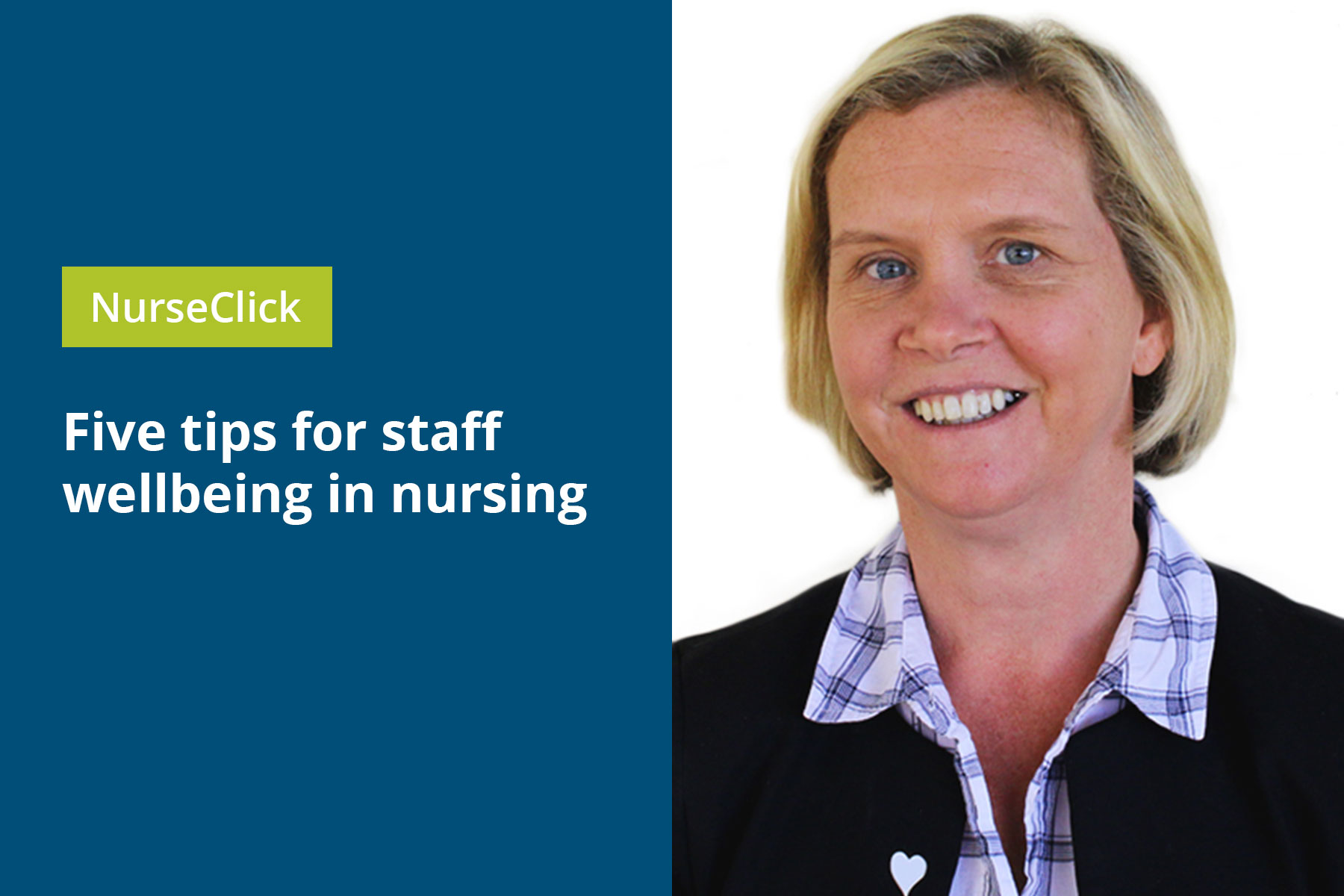Prioritising the wellbeing of nursing staff extends far beyond mere compassion; it’s a strategic imperative, essential for fostering exceptional patient care, and integral to achieving organisational excellence.
When nurses feel valued, supported, and cared for, their job satisfaction soars, leading to higher retention rates and lower turnover. These outcomes not only reduce recruitment costs but also ensure continuity of care, ultimately enhancing patient outcomes.
By implementing small yet impactful strategies to boost morale and job satisfaction, you can significantly enhance your employees’ wellbeing and performance.
To help you get started, Ashley Page MACN, Australian College of Nursing (ACN) Graduate Certificate in Leadership and Management Nurse Educator, has shared her top five human resource (HR) management tips for nurse leaders who want to maximise their team’s wellbeing and performance.

Foster a positive work culture
Create a positive work environment that promotes open communication, collaboration, and respect among team members. Encourage a culture of appreciation and recognition where nurses feel valued for their contributions.
Try this:
Amid the hustle and bustle, it’s challenging to remember to share positive feedback during busy workdays. To help with this, establishing a regular way to express appreciation can be helpful. At ACN we have introduced ‘Thankful Thursdays’, an opportunity for employees to give a shout-out to a colleague that has helped them or gone above and beyond that week. The shout-outs are shared with the whole organisation on Microsoft Teams and provide a special opportunity for quiet achievers to be recognised for their accomplishments.

Effective performance management
Implement a robust performance management system with regular feedback, goal setting, and performance evaluations. Provide constructive feedback to help nurses improve their skills and promptly and professionally address performance issues.
Try this:
Providing feedback can be challenging, especially if you prefer to avoid confrontations. A great way to ease into it is using the ‘Sandwich method’. Start by offering positive feedback about something the staff member has been doing well, then move on to the problem you are trying to address, before finishing again with some positive words of encouragement. Using this method softens the impact of negative feedback and makes it more likely that the recipient will take it on board.

Invest in employee wellbeing
Nurses face high levels of stress and burnout. Implement strategies for employee wellbeing, such as access to counselling services, stress management programs, and wellness initiatives. Promote self-care practices and encourage nurses to prioritise their physical and mental health.
Try this:
ACN’s NurseStrong Facebook group is a safe space for thousands of nurses around the country to support and uplift each other. The free group is the perfect place to receive wellbeing inspiration and advice that is specific to nurses and engage with peers that are experiencing the same challenges along their wellbeing journeys.

Prioritise work-life balance
Create a supportive work environment that understands and accommodates personal needs and obligations. Recognise the importance of work-life balance for your nursing team. Encourage flexible scheduling whenever possible and promote policies for adequate time off.
Try this:
Where possible introduce remote work options. This can help nurses balance their professional and personal responsibilities. This flexibility enables nurses to better manage childcare, pursue further education, or engage in personal hobbies and interests. Although not all positions can be performed remotely, you may be able to think of creative ways to incorporate some remote elements. For example, staff members may be able to complete professional development in the comfort of their own home rather than face-to-face.

Support training and development
Provide ongoing training and development opportunities to enhance the skills and knowledge of your nursing staff. Support them in attending workshops, conferences, and relevant courses to stay updated with the latest practices and technologies.
Try this:
Becoming a member of the professional association for nurses, ACN, is a convenient way to stay on top of professional development. Members receive access to complimentary CPD courses as well as discounts on events, leadership programs and graduate certificates. You can support your staff members to join on a discounted Affiliate membership rate by signing your organisation up to become an ACN Affiliate.
Introducing these small strategies can make a big impact on your success as a nurse leader and your team’s performance and wellbeing. If you are feeling inspired to learn more about human resource management and are interested in pursuing a formal leadership qualification, look no further than the ACN Graduate Certificate in Leadership and Management. You will be able to study online, anytime, anywhere and can gain your postgraduate leadership qualification in as little as 12 months.
Ashley Page MACN
Ashley Page MACN is a Coordinator and Tutor for ACN’s Graduate Certificates in Acute Care and Leadership and Management. Ashley’s nursing experience includes over 15 years in emergency nursing and management. Working as a Nurse Educator since 2012, Ashley is passionate about her role, which allows her to interact with nurses at different stages of their careers. Delivering quality education is a priority for Ashley, and her teaching focuses on helping students to apply theory into practice.






